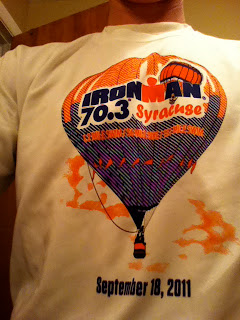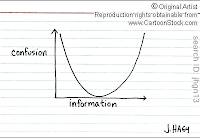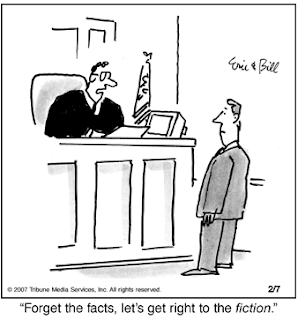One specific complaint by many revolves around the 140.6 triathlon. Any 140.6 race that consists of a 2.4 mile swim, 112 mile bike and a 26.2 mile run is typically called an Ironman. People that complete the race in the obligatory 17 hour timetable are also called Ironman. But, the title Ironman only applies to blokes that complete a WTC sponsored event. Should another, competing company host a 140.6, you do not have the right to be officially called an Ironman. This doesn't make you any less awesome. A rose by any other name is still an Ironman.
To further enragen the blood, the WTC started calling its half distance events "Ironman." Their website lists the 70.3 Ironman series. Now triathlon purists (I am one, I think) would never call these things Ironman. They are Half-Ironman events.
However, I concede the point. The WTC hosts the events, has paid money for the rights and privileges, and (quite honestly) they put on really good races. Do they hand out lots of swag? Nope. Do they offer benefits to people that race in their events? Not likely. Do they overcharge? Probably. Remember, they are a for-profit company. It's their job to make money. Will I be signing up for more of their events? Most definitely.
This year, I raced in 2 "Ironman" events, Ironman Lake Placid (a true Iron event) and the Ironman Syracuse (a fraudulent Half-Iron event). I thought I had been given everything that was coming to me within 15 minutes of crossing the finish line (a bottle of water, a finisher's medal, and a couple of cookies). I concluded my season and went on with the rest of my life.
Recently, the WTC sent me a package.
I like the shirt. It is a comfy, technical material. It is a neutral gray. I could go without the orange fonts but since Syracuse University is an orange laden campus, it's not that bad. The problem is that I already have an (Half) Ironman t-shirt.
That's the original. The color is white. It is the same comfy, technical material. It has the exact same picture. Same fonts. Same orange. Same date. What gives? They didn't send along any reason for the additional fabric.
My original hypotheses went as follows:
-The WTC had too much profit from the race and decided to share the benefits.
-The WTC had found an extra box of unopened shirts and sent them out.
The WTC really prefers gray to white and, since we are all ambassadors of the sport, wanted us to advertise their preference.
Then, someone told me to look a little closer at the original. For your viewing pleasure, I have zoomed in on the main graphic.
See it yet? Don't worry, it too me a while too. Let me zoom in a little closer.
In the original event, apparently we swam 1.2 miles, biked 56, and then again swam 13.1 miles. The infamous Swim, Bike, Swim. It all makes sense now... A half-marathon swim would better explain my performance in that race.

























